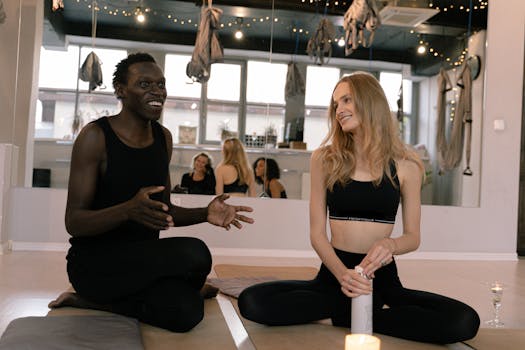Unlocking Happiness: The Mental Health Benefits of Regular Physical Activity
Takeaways: Regular physical activity can significantly boost your mental health by reducing stress, alleviating anxiety, and enhancing your mood. Incorporating exercise into your daily routine doesn’t have to be daunting; find activities you love and make them a part of your lifestyle!
Why Exercise Matters for Your Mind
Hey there! Let’s chat about something super important yet often overlooked: our mental health. Did you know that regular physical activity is like a magic pill for your mind? Seriously! I used to think that exercise was just about getting fit or losing weight, but boy, was I wrong. The mental health benefits of physical activity are absolutely amazing, and I’m here to spill the tea on why you should lace up those sneakers and get moving!
The Science Behind It
When we engage in physical activity, our bodies release endorphins. These little guys are often referred to as ‘feel-good hormones’ because they can create feelings of happiness and euphoria. I remember the first time I finished a run; it felt like I had just conquered the world! The stress melted away, and I was left with this incredible rush of positivity.
Stress Relief
Life can throw a lot at us—work, family, bills, you name it. Stress is a part of life, but how we handle it makes all the difference. Regular exercise can be a powerful stress-buster. Whenever I feel overwhelmed, I hit the gym or go for a walk. It’s like I’m pressing the reset button on my brain. Studies have shown that physical activity helps lower cortisol levels (that’s the stress hormone, by the way) and can help you feel more relaxed and in control.
Boosting Your Mood
Have you ever noticed how you feel a rush of happiness after a workout? It’s not just in your head! Exercise can help combat feelings of depression and anxiety. I remember a period when I was feeling down; I decided to try a dance class, and it was one of the best decisions I ever made. Not only did I learn some cool moves, but I also left the class feeling lighter and happier than when I walked in. It’s like a mini-vacation for your mind!
Finding What Works for You
Now, I know what you might be thinking: “But I don’t like running!” That’s totally okay! The beauty of physical activity is that it comes in so many forms. Whether it’s yoga, swimming, dancing, or even gardening—find what you love. Personally, I’ve dabbled in various activities, from kickboxing to hiking, and it’s all about what makes you smile.
Setting Realistic Goals
One of the biggest barriers people face is the idea that they need to go all out or nothing at all. I’ve been there! But let’s keep it real: start small. Maybe you take a 10-minute walk during your lunch break or do a quick 15-minute workout at home. Celebrate those small victories! Over time, you’ll build up your stamina and confidence, and trust me, you’ll want to do more.
Making it Social
Another fantastic way to stay motivated is to involve friends or family. I started a weekly hiking group with some friends, and not only do we get our exercise in, but we also catch up and have a blast together. It turns exercise into a fun social event rather than a chore. Plus, when you have a buddy, you’re less likely to skip out on those workouts!
FAQs
Q: How often should I exercise for mental health benefits?

Q: What type of exercise is best for mental health?
A: Any exercise you enjoy is great! Aerobic exercises, like running, swimming, or cycling, have been shown to have significant mental health benefits, but even activities like yoga and strength training can help.
Q: Can I see mental health benefits from just a few minutes of activity?
A: Absolutely! Even short bursts of physical activity can boost your mood and reduce stress. Every little bit counts!
Q: What if I don’t have time to exercise?
A: Look for opportunities throughout your day. Take the stairs instead of the elevator, park further away, or do quick workouts at home. It’s all about finding what works for you!




